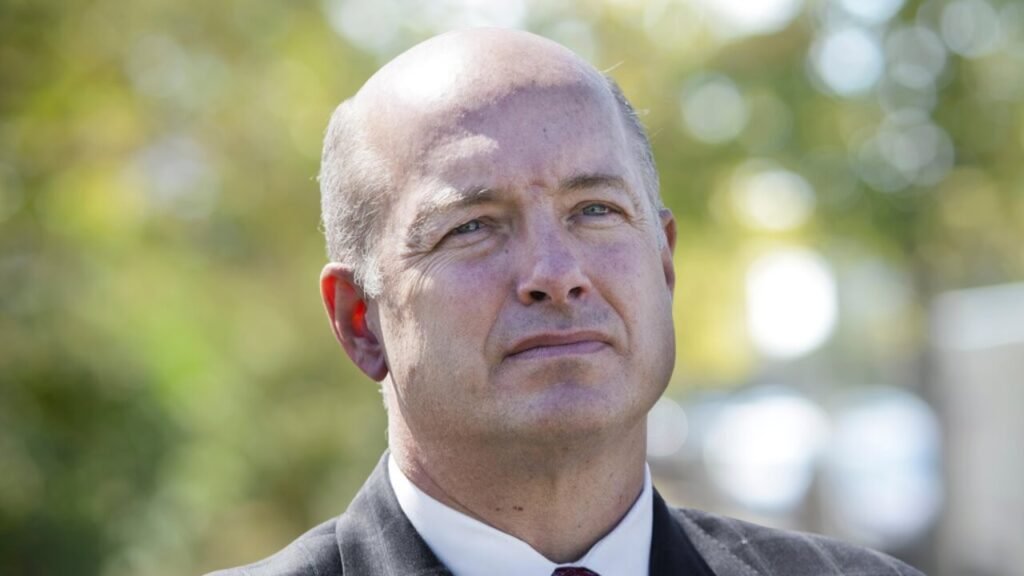David Sokol is a name that resonates deeply within corporate America, particularly among those familiar with Berkshire Hathaway and its former chairman, Warren Buffett. Once regarded as a potential successor to Buffett himself, Sokol’s career trajectory took an unexpected turn that led to both admiration and controversy. His impressive leadership in multiple companies, including NetJets and MidAmerican Energy, positioned him as a formidable executive. However, his sudden resignation in 2011 amid allegations of insider trading cast a shadow over his otherwise stellar record.
Despite this, Sokol remains an influential figure in the business world. His strategic acumen, bold decision-making, and candid leadership style have left an indelible mark on corporate America. This article will explore his rise through the ranks, the scandal that ended his tenure at Berkshire Hathaway, and his ongoing influence in the business sphere.
The Early Years: From Humble Beginnings to Business Mogul
David Sokol journey began in Omaha, Nebraska, a city known for fostering business legends like Warren Buffett. Born in 1956, Sokol exhibited an entrepreneurial spirit from a young age. He earned a degree in civil engineering from the University of Nebraska and quickly moved into the energy sector, where he made a name for himself by reviving struggling companies.
His ability to turn around failing businesses became his hallmark. Sokol took over the nearly bankrupt CalEnergy in the late 1980s, transforming it into a thriving energy company. This success caught the attention of Berkshire Hathaway, which would later acquire the rebranded MidAmerican Energy. Under his leadership, MidAmerican flourished, expanding into renewables and infrastructure investments.
David Sokol and Berkshire Hathaway: A Meteoric Rise
Sokol’s tenure at Berkshire Hathaway solidified his reputation as a skilled executive. He was instrumental in the acquisition and growth of NetJets, a private jet company catering to high-net-worth individuals. While NetJets initially struggled with profitability, Sokol implemented sweeping reforms that restored its financial health. His track record made him one of Buffett’s most trusted executives, sparking speculation that he could one day take the reins of Berkshire Hathaway.
Warren Buffett, known for his careful selection of leadership within his conglomerate, often spoke highly of Sokol’s managerial capabilities.
“David Sokol is an exceptional leader with a strong ability to drive results,”
Buffett once stated. This endorsement further fueled expectations that Sokol was destined for the top job.
The Lubrizol Controversy: A Downfall in the Making
In 2011, Sokol’s career took an unexpected and dramatic turn. He resigned from Berkshire Hathaway following revelations that he had personally invested in shares of Lubrizol, a chemical company, before recommending its acquisition to Berkshire. This raised concerns about insider trading and ethical breaches, shaking the very foundation of his esteemed reputation.
While Sokol denied any wrongdoing, insisting that his investments were legal and disclosed, the situation was enough to prompt his exit from Berkshire. Buffett himself expressed disappointment, stating that Sokol’s actions were “inexplicable and inexcusable.” The Securities and Exchange Commission (SEC) investigated the matter but ultimately did not press charges. However, the damage to Sokol’s reputation was already done.
Reddit discussions surrounding the scandal reveal mixed opinions. Some users believe that Sokol’s actions, while legally defensible, crossed ethical lines that someone in his position should have avoided. Others argue that he was a scapegoat for broader systemic issues in corporate governance. One user noted,
“In any other company, Sokol’s move would’ve been brushed under the rug. But when you’re in line to lead Berkshire Hathaway, the scrutiny is tenfold.”
Life After Berkshire Hathaway: Reinvention and Influence
Despite the scandal, Sokol did not fade into obscurity. He continued to invest and lead various business ventures, including his own firm, Teton Capital. His expertise in energy and infrastructure remained in high demand, and he continued to offer insights on corporate leadership and strategy.
Sokol’s book, Pleased But Not Satisfied, offers a glimpse into his mindset. In it, he emphasizes continuous improvement, resilience, and ethical leadership—an irony given the circumstances of his departure from Berkshire Hathaway. Nevertheless, his principles on business efficiency and long-term strategic thinking still resonate with aspiring executives.
The Lasting Legacy of David Sokol
David Sokol’s legacy is a complex one. On one hand, he was a visionary leader who revitalized multiple businesses, created immense shareholder value, and demonstrated an unmatched ability to execute corporate turnarounds. On the other, his departure from Berkshire Hathaway under controversial circumstances serves as a cautionary tale about corporate ethics and governance.
Regardless of one’s stance on the Lubrizol incident, Sokol remains a figure worth studying. His career offers valuable lessons in business acumen, leadership resilience, and the consequences of ethical missteps. While he may never have taken over Berkshire Hathaway, his influence on the business world endures.
Conclusion: A Man of Contrasts
David Sokol story is one of ambition, success, and controversy. His rise from modest beginnings to a potential successor of Warren Buffett showcased his exceptional leadership and strategic prowess. Yet, his fall from grace serves as a reminder that even the most promising careers can be derailed by ethical concerns.
As corporate America continues to evolve, the lessons from Sokol’s journey remain relevant. Whether viewed as a business genius or a cautionary tale, his impact on the corporate world is undeniable. The debate surrounding his legacy will likely persist, ensuring that his name remains a subject of discussion for years to come.
Liz Ann Sonders: Navigating the Currents of Investment Strategy

